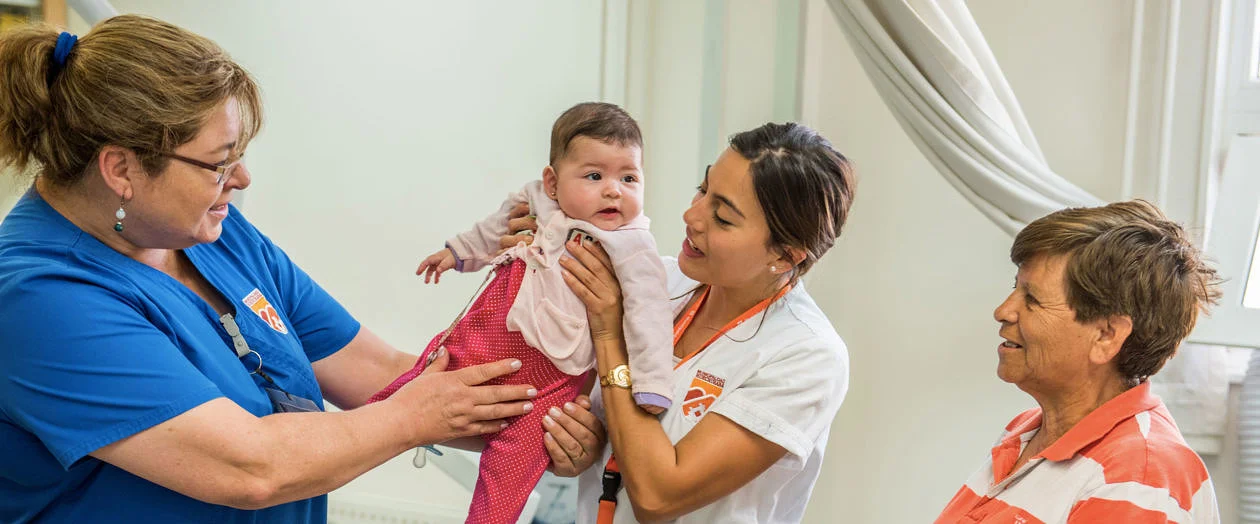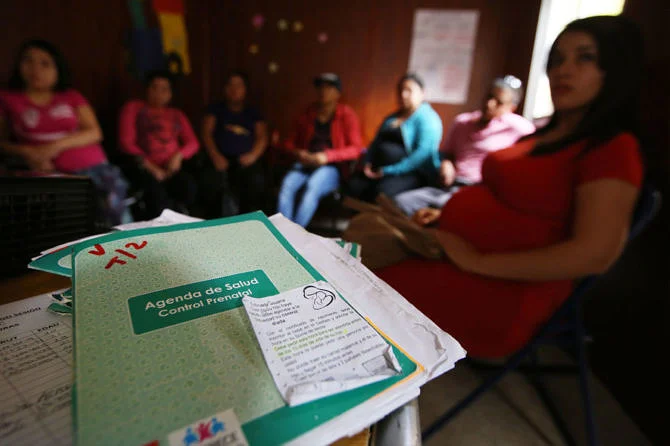Chile Crece Contigo (ChCC)
An intersectoral policy enforcing children's rights in areas such as health, education, housing, income transfer, among others

Zoom in Details
The Comprehensive Child Protection System, Chile Crece Contigo (ChCC) was launched in 2007 as the first cross-cutting, systemic, and coordinated policy to protect and promote children’s rights in the country, covering children from 0 to 4 years of age and pregnant women.
Over time, it has become an exemplar in the promotion of holistic child development, serving as inspiration for programmes implemented in Uruguay, Colombia and Paraguay.
- Government Agencies Engaged:
- Education, Health, Social Development, Social Protection
- Implementing Agency:
- National coordination was conducted by the Ministry of Social Development, in close partnership with the Ministry of Health, Ministry of Education and all 345 municipalities in the country.
- Funding Source:
- The programme is fully funded by the Government of Chile. In 2018, US$ 78.8 million were allocated to the programme. Service provision is monitored by technical reports and linked to the transfer of resources from the national to the Ministries of Health and Education and to the municipal level. For resources to be transferred, municipalities and all implementing agencies must comply with a series of established targets, as well as with specific objectives and contents.
- Scale:
- Nationwide. The ChCC has achieved scale rather swiftly and was being offered in all Chilean cities within a year of being set up.
- Area:
- Parents+
- Location:
- Chile
- Reach:
- Pregnant women: 160 000
Infants: 155 000
Children aged 0-4: over 600 000
Children aged 4-5: 55 000
Children aged 6-9: 16 000
(annually) - Share:
- Print:
Summary of Intervention/Programme
The goal of the Chile Crece Contigo programme is to ensure that all children achieve their maximum development potential by means of comprehensive follow-up of their growing process. To that end, it offers simultaneous support to children and families in areas that impact development, such as health, education, housing, parents’ working conditions, and strengthening parenting skills. It is implemented by the State, mainly by the Ministries of Health, Education, and Social Development, and by municipalities in the country.
“Chile, like other countries, faces a disintegration of the social fabric, and there is often distrust even in relation to neighbors and people in the neighborhood. Nadie Es Perfecto also allows individuals to interact and share their own experiences.” — Felipe Arriet, Technical Advisor of Chile Crece Contigo, Ministry of Social Development
Children’s entry point into Chile Crece Contigo is the public health system, in the first prenatal care visit of their mothers. Data on pregnant mothers, infants and children are recorded in the Registration, Derivation and Monitoring System (SRDM), through which professionals in health centers follow up on specific cases and carry out risk assessments as related to the development of each individual, according to age. ChCC has 12 national programmes covering health & mental health, education, strengthening of municipal capacity, free child helpline, among other areas
In the field of parenting, two lines of action are highlighted: the first, consisting of home visits, is restricted to families under some kind of risk to their children’s full development. The second is the Nadie es Perfecto (Nobody’s perfect) initiative, which uses group sessions to promote knowledge on children’s integral development and is aimed at parents and caregivers of children up to 5 years of age registered in the health system, although participation is voluntary. This methodology has been developed and used in Canada since the 1980s, under the same name (Nobody’s Perfect), and it was made available free of charge to the Chilean government through an agreement with the Canadian health agency, adapted to the local context.

What worked well
Intersectoral approach to address intertwined issues
One of the main drivers of success for ChCC is the cross-sectoral approach and viewpoint which the programme took from its beginning. While primary coordination started in the health sector, with pre-natal check-ups as the first point of contact, other risk factors were taken into consideration and adequately addressed in a timely manner. For example, if a caregiver is found to have issues with finding stable housing, the appropriate government agency would provide assistance to the caregiver to find affordable, long-term housing.
The Registration, Derivation and Monitoring System (SRDM) also allows for the follow-up of each child’s developmental history throughout early childhood and a smooth identification and resolution of problems. When risks are detected, such as unemployment, adolescent pregnancy, drug or physical abuse, the child or the family is referred to specific services provided under the ChCC umbrella, such as home visits, access to daycare or kindergarten, developmental support for children with disabilities, or employment programmes for caregivers seeking stable employment.
Building a centralised registry
The ChCC took on a universal approach and services provided are offered to all children and families. Concurrently, the programme ensured that specific services were made available to children and their families with risk related to biological, psychological and socio-environmental factors. The development progress is monitored through the centralised SRDM, which allows professionals of the ChCC’s healthcare centers to deploy developmental and biopsychosocial risk assessment guidelines. All information is entered into a computerized system and made available to programme stakeholders.
Evidenced-based caregiver support curriculum
Specifically, for the Nadie Es Perfecto programme, ChCC worked closely with the World Bank to conduct an impact assessment. This is crucial in ensuring that the content is meaningful and of high quality and relevance to parents and caregivers. The assessment showed that the Nadie Es Perfecto programme was effective in changing the beliefs and expectations of fathers, mothers and caregivers, as well as offering strategies that improve childcare practices by means of the experiences shared and the establishment of group support networks. It also showed improvement in cognitive stimulation, reduction of negative disciplinary practices (shouting and physical punishment) and increase in affective practices of parents and caregivers towards children. Most importantly, the study highlighted that the effects are greater among children from socially disadvantaged families.